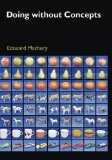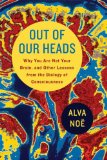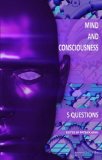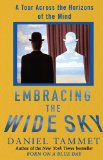new book – ‘Why We Make Mistakes’
February 16, 2009
Why We Make Mistakes: How We Look Without Seeing, Forget Things in Seconds, and Are All Pretty Sure We Are Way Above Average by Joseph T. Hallinan (Broadway, 2009).
According to Amazon, this book is being released tomorrow, but my local Barnes & Noble had it on the shelves yesterday.
Book Description
We forget our passwords. We pay too much to go to the gym. We think we’d be happier if we lived in California (we wouldn’t), and we think we should stick with our first answer on tests (we shouldn’t). Why do we make mistakes? And could we do a little better?We human beings have design flaws. Our eyes play tricks on us, our stories change in the retelling, and most of us are fairly sure we’re way above average. In Why We Make Mistakes, journalist Joseph T. Hallinan sets out to explore the captivating science of human error–how we think, see, remember, and forget, and how this sets us up for wholly irresistible mistakes.
In his quest to understand our imperfections, Hallinan delves into psychology, neuroscience, and economics, with forays into aviation, consumer behavior, geography, football, stock picking, and more. He discovers that some of the same qualities that make us efficient also make us error prone. We learn to move rapidly through the world, quickly recognizing patterns–but overlooking details. Which is why thirteen-year-old boys discover errors that NASA scientists miss—and why you can’t find the beer in your refrigerator.
Why We Make Mistakes is enlivened by real-life stories–of weathermen whose predictions are uncannily accurate and a witness who sent an innocent man to jail–and offers valuable advice, such as how to remember where you’ve hidden something important. You’ll learn why multitasking is a bad idea, why men make errors women don’t, and why most people think San Diego is west of Reno (it’s not).
Why We Make Mistakes will open your eyes to the reasons behind your mistakes–and have you vowing to do better the next time.
The book’s website has excerpts, links, and a blog.
Here’s a review, from Cheryl Truman on books.







